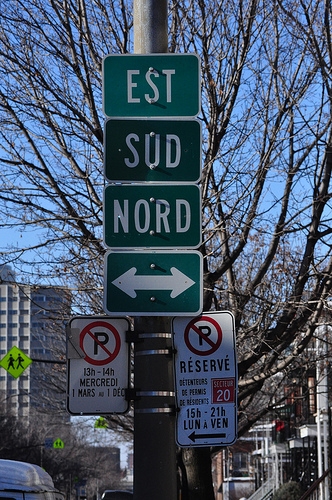Career changes in France uncommon
“In France, it is exceptionally rare and very difficult to change careers.”¹
French people go to school, they go to university and whatever they choose to study is what they subsequently become.
If you attend engineering school – you will be an engineer et puis c’est tout.
French language tells the story
Evidence of this can be found in the way you explain what you do for work in French: je suis journaliste, je suis médecin. In a country and a language where articles are everywhere you look, their absence in this construct is telling.
Saying “I am journalist”, as opposed to “I am ‘a’ journalist”, implies that what I do, to a great extent, defines who I am. And by extension, where I fit in the social hierarchy.
American career counsellor Barbara Babkirk says “French students must decide on a discipline or career path at 16 or 17 years of age … One must decide on a direction early on, and that decision essentially casts their professional fate.”²
No gap year for French students
The concept of taking a gap year is virtually unheard of in France. In Australia, this year off (often spent travelling or working), allows students more time to reflect and decide on their career path.
In France, changing careers once is rare, let alone several times, yet this is commonplace in Australia.
“It is accepted that [Australian] students leaving secondary education today will change careers on average four to five times during their working lifetime.”³
In Australia, transferrable skills are the emphasis and lateral, not linear career paths are becoming the norm.In fact ‘Cultural fit‘ is high on recruiters’ lists, and qualifications, whilst important can be substituted for relevant on-the-job experience.?
Not so in France, where pas de diplôme = pas d’emploi.
In France, “diplomas and status are often much more important than experience.”?
Is the French way better?
Do Australians take their jobs less seriously than the French because they know they can always opt out?
Does an awareness of the lack of career mobility make the French more dedicated workers?
Personally, having been raised in a culture and a generation of ‘anything is possible’, the French way seems restrictive and de-motivating. Not to mention quite frightening when one considers the pressure upon the shoulders of teenagers who must decide the direction their lives will take, at just age 17.
What is your view?
References¹Finding Work in Paris 01/11/11
²Considering a Job or Midlife Career Change? by Barbara Babkirk 18/09/07
³Creative Career Planning by Noel Waite 1998
? Don’t have the skills for the job? We want you. By Sarah O’Carroll 17/04/2012
?Job Hunting in France by Finn Skovgaard Image credits
1 las – initially on Flickr
2 Ville de Clermont-Ferrand on Flickr
3 bob august on Flickr
4 Mouse on Flickr











Career changes is very difficult in France. There is not flexibility, everything is rigid. And yes the diploma is more important than the experiences!Dommage…
Thanks for your comment Emmanuelle! There is a lot of evidence to suggest that attracting the top talent to organisations in the future will require a more flexible approach, so perhaps some change will be necessary in France.
Dans le livre “Almost French’ (je crois que l’auteur est Sara[h] Turnbull [?]) l’auteur est en train de rédiger une lettre qui accompagnera son CV (lettre de demande d’emploi?)et elle la montre à son partenaire/futur mari (Frédéric[?])qui décide de l’aider à la récrire car il est convaincu que les employeurs n’accepteront pas la lettre de Sara[h] telle qu’elle était. Mais son langage est vraiment différent de celui utilisé par Sara[h]. Frédéric emploie des locutions plus soignées, de façon à impressionner les employeurs potentiels de Sara[h], pour rendre le ton de la lettre plus érudit.
Je dis tout ça pour donner un autre exemple de l’attitude française, comparée à celle en Australie – où, de nos jours, on apprend à écrire de façon simple et directe.
Merci Fitz! J’ai moi aussi lu ce livre, et je partage votre point de vue sur ce sujet. Quand je me suis retrouvée dans cette situation quand mon fiancé (qui est francais) cherchait du travail en Australie. J’ai du ‘épurer’ ses lettres de motivation (pour repondre à votre question) qui étaient parfois longue!
Histoire d’une formation scolaire plus exigeante et traditionnelle que la nôtre, ce qui oriente la personne vers cette manière de composer ce gentre de document.
Merci Fitz – c’est vrai, et pour mon fiancé c’est mieux maintenant il est sorti du moule francais et vogue maintenant sur un style international en choisissant le meilleur des deux modeles. Il m’a egalement initie aux methodes francaises!